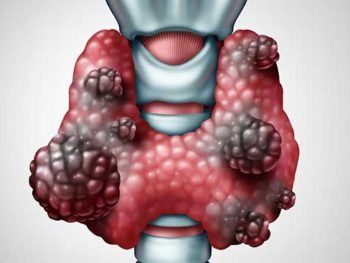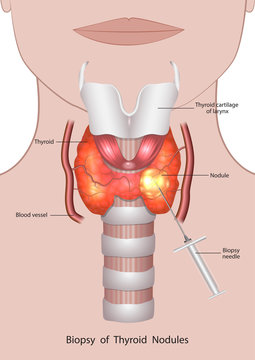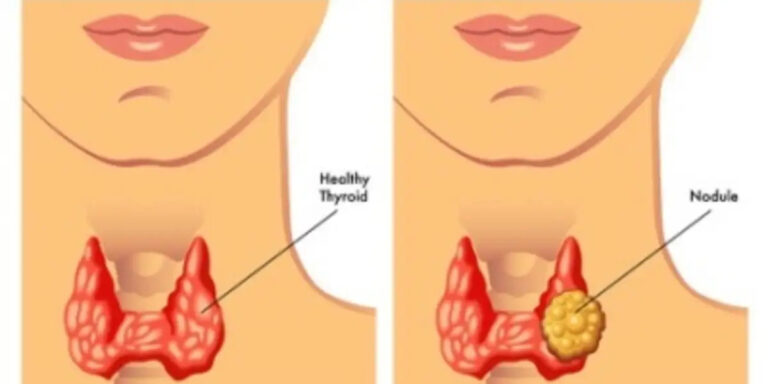Beyond Surgery: Emerging Therapies For Benign Thyroid Nodules
Thyroid nodules, though often benign, can present challenges in management, leading researchers to explore alternatives to traditional surgical interventions. Recent advancements in medical science have unveiled a spectrum of emerging therapies offering effective and minimally invasive options for individuals with non-cancerous thyroid nodules. This article delves into the innovative approaches that extend beyond surgery, providing hope for improved outcomes and enhanced patient experiences.
Understanding Benign Thyroid Nodules: A Brief Overview
Thyroid nodules are abnormal growths that develop within the thyroid gland, a butterfly-shaped organ located in the neck. While the majority of nodules are benign, they can cause symptoms such as difficulty swallowing, hoarseness, or cosmetic concerns. Traditionally, surgery has been a common treatment option, but emerging therapies aim to offer alternatives that are less invasive, with reduced recovery times and fewer associated risks.
Radioactive Iodine Therapy: Targeting Thyroid Nodules with Precision
One non-surgical approach gaining traction is Radioactive Iodine Therapy (RAI). This treatment involves administering a dose of radioactive iodine, which is selectively absorbed by thyroid tissue. RAI has shown efficacy in reducing the size and activity of thyroid nodules without the need for surgery. This targeted therapy is particularly beneficial for patients with multiple nodules or those who are not suitable candidates for surgery due to various reasons.
Ultrasound-Guided Ethanol Ablation: A Minimally Invasive Option
In the realm of minimally invasive procedures, Ultrasound-Guided Ethanol Ablation (EA) has emerged as a promising solution. This technique involves injecting ethanol directly into the thyroid nodule under ultrasound guidance. The ethanol induces cellular destruction, leading to a reduction in nodule size. EA is particularly suitable for cystic or predominantly cystic nodules, offering a less invasive alternative for patients seeking to avoid surgery.
Hormone Replacement Therapy: Balancing Hormones for Nodule Management
Hormone Replacement Therapy (HRT) represents another avenue in the non-surgical management of thyroid nodules. By regulating hormone levels, typically involving thyroid hormone replacement, HRT aims to create an environment less conducive to nodule growth. This approach is often employed in cases where nodules are associated with hormone imbalances or thyroid dysfunction, offering a systemic solution to address underlying causes.
Cutting-Edge Technologies: Laser Ablation for Precise Nodule Treatment
Laser Ablation, a cutting-edge technology in the field, has shown promise as a non-surgical treatment for thyroid nodules. This technique utilizes laser energy to heat and ablate targeted tissues, reducing nodule size. The precision of laser ablation minimizes damage to surrounding healthy tissue and provides an outpatient alternative to surgery, offering faster recovery times and fewer complications.
Radiofrequency Ablation: Harnessing Thermal Energy for Nodule Reduction
Radiofrequency Ablation (RFA) employs thermal energy to generate heat and selectively destroy thyroid nodules. This minimally invasive procedure is performed under ultrasound guidance, ensuring accuracy and safety. RFA has demonstrated effectiveness in reducing nodule volume and alleviating associated symptoms, making it a viable option for patients seeking non-surgical alternatives.
Patient-Centric Approaches: Tailoring Therapies to Individual Needs
The emergence of these non-surgical therapies signifies a shift towards patient-centric care. Individualized treatment plans, taking into account factors such as nodule size, location, patient preferences, and overall health, enable healthcare providers to tailor interventions for optimal outcomes. This approach aligns with the growing emphasis on shared decision-making, empowering patients to actively participate in their treatment journey.
Comparative Analysis: Non-Surgical vs. Surgical Options
While surgical removal of thyroid nodules remains standard practice, the landscape is evolving with the introduction of non-surgical alternatives. Comparative analyses between surgical and non-surgical approaches underscore the benefits of the latter, including reduced recovery times, lower complication rates, and enhanced patient satisfaction. However, individual cases may vary, and the choice between surgical and non-surgical options should be guided by a thorough assessment of each patient’s unique circumstances.
Challenges and Considerations in Non-Surgical Approaches
Despite the promising outcomes associated with emerging therapies, challenges and considerations exist. Factors such as nodule type, size, and patient-specific characteristics may influence the suitability of non-surgical interventions. Long-term studies assessing the durability of these treatments and potential recurrence rates are essential for establishing their efficacy and safety in the broader context of thyroid nodule management.
Future Horizons: Ongoing Research and Innovations
As research in thyroid nodule management advances, ongoing investigations aim to refine existing therapies and explore novel interventions. The integration of artificial intelligence in treatment planning, further optimization of existing technologies, and the development of targeted pharmacological agents represent the frontier of innovation. These advancements hold the promise of continuously improving outcomes and expanding the repertoire of non-surgical options for individuals with benign thyroid nodules.
Conclusion
The landscape of thyroid nodule management is undergoing a transformative shift, with emerging therapies offering non-surgical alternatives that prioritize patient well-being and minimize invasiveness. From radioactive iodine therapy and ultrasound-guided ethanol ablation to cutting-edge technologies like laser ablation and radiofrequency ablation, these interventions present viable options for individuals seeking effective and tailored approaches to benign thyroid nodule treatment. As research continues to evolve, the future holds the potential for even more innovative solutions, solidifying non-surgical therapies as integral components in the comprehensive care of individuals with thyroid nodules.








